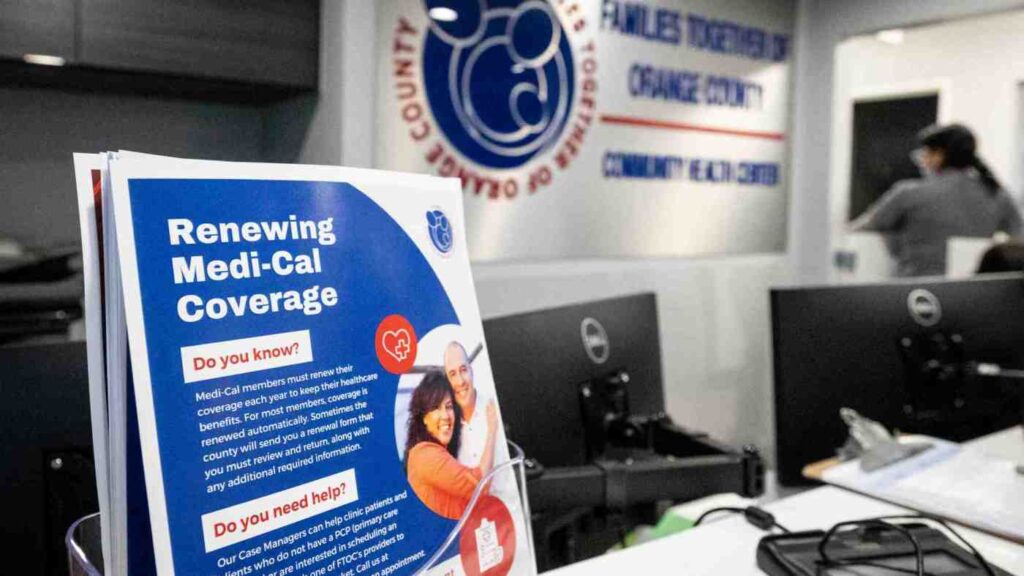
When the Senate narrowly passed a spending bill supporting President Donald Trump’s agenda, the potential ramifications for Southern California became a focal point. The bill, approved after an exhaustive overnight session on July 1, introduces significant changes to tax policy and programs like Medicaid, sparking concerns about its impact on the region.
Among the most substantial changes are the proposed cuts to Medicaid, which the Senate plans to slash by $1 trillion. This reduction would be achieved through new work requirements for able-bodied individuals and adjustments in federal reimbursement to states. In California, where Medicaid is known as Medi-Cal, more than 2.3 million residents could lose their coverage, according to estimates from the Senate Finance Committee’s Democrats.
Medicaid Changes and Local Concerns
The Senate’s Medicaid cuts exceed those proposed by the House, with the Congressional Budget Office projecting that 11.8 million more Americans could be uninsured by 2034. California Governor Gavin Newsom warns that the changes could jeopardize up to $28 billion in federal funding, potentially leading to hospital closures and undermining efforts to reduce the state’s uninsured population.
Kim Doyle, a mother from Huntington Beach, expresses her anxiety over the proposed changes. Her daughter, Trinity, who has autism and Down syndrome, relies heavily on Medi-Cal for her specialized medical care. Doyle fears that the bill could reduce the frequency of her daughter’s crucial checkups and the availability of social services.
“We’ve fought so hard to get these services for our kids,” Doyle said. “I’m concerned that things will be cut, and she won’t get the same quality of care.”
The White House, however, counters these concerns, asserting that the bill will protect vulnerable patients while eliminating “waste, fraud, and abuse” in Medicaid.
Political Reactions and Legislative Process
Both of California’s U.S. senators, Democrats Alex Padilla and Adam Schiff, have vocally opposed the bill. Padilla criticized his Republican colleagues, stating that their votes could lead to rural hospital closures and increased electricity bills, while Schiff warned of the potential damage to renewable energy initiatives.
The bill now returns to the House, where leaders are optimistic about meeting Trump’s July 4 deadline. However, some House Republicans, including Rep. Young Kim of Anaheim Hills, have expressed opposition to the Medicaid cuts, emphasizing their unwillingness to support measures that threaten coverage for vulnerable populations.
Impact on Planned Parenthood and Reproductive Services
The bill also proposes a one-year block on Medicaid payments to Planned Parenthood and similar organizations, part of a broader Republican effort to defund abortion providers. Planned Parenthood of Orange and San Bernardino Counties, which conducted nearly 270,000 medical visits last year, is assessing how to mitigate potential funding losses.
“Thousands of patients depend on us for high-quality, compassionate care, and we remain steadfast in our commitment to keeping our doors open,” said Krista Hollinger, president and CEO of Planned Parenthood of Orange and San Bernardino Counties.
Additional Provisions and Economic Implications
Beyond healthcare, the Senate’s bill includes provisions affecting state and local tax deductions, tips, and overtime pay. The bill raises the cap on state and local tax deductions for five years, benefiting taxpayers in high-tax states like California.
Additionally, the bill allows deductions for overtime pay and tips, although these are capped and only apply through 2028. Environmental tax credits, however, have been stripped, dismantling incentives for clean energy and raising concerns about future energy costs.
As the bill progresses, Southern Californians and their representatives continue to scrutinize its potential impacts, balancing the promise of economic benefits against the risks to healthcare and environmental initiatives.







